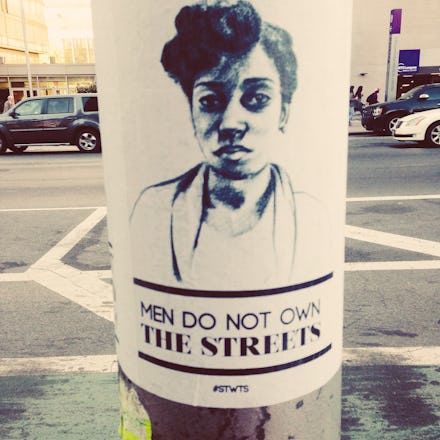#NoWomanEver Exposes the Everyday Misogyny Women Deal With

The anger and frustration that might arise when a woman is on the receiving end of a particularly explicit catcall might also come with some confusion — did he really think that would work?
On Sunday, women on Twitter had a message for men: #NoWomanEver has fallen in love with her catcaller, harasser or stalker.
Though women laid the sarcasm on thick in their accounts of harassment, the tweets expose how pervasive and invasive misogyny is to women's everyday lives. The hashtag also takes down a major misconception about catcalling and street harassment, which is that they are good-natured gestures women should take as compliments.
As Twitter users alluded, men don't typically stop at "Hey, beautiful." Men will follow women down the street, through grocery stores or even to their front doors. If there's any reason catcalls aren't compliments, it's because, in these moments, women fear for their lives.
Street harassment and catcalling though, is usually about more than a man trying to score a date. More so, these behaviors are about power. Mic writer Julianne Ross explained in 2014, "These invasive comments affirm an attitude that men are entitled to publicly evaluate women's bodies and tell them what to do ("Let me look at you!"), and reinforce harmful, already prevalent assumptions that women's worth is related to their ability to please men."
After going through the hashtag on Sunday, some men began to realize their complicity in this patriarchal power structure:
But, as one Twitter user pointed out, others might feel defensive after reading the #NoWomanEver tweets precisely because they force men to confront the truth:
Another called men to listen to women and believe their stories instead of being quick to cry "Not all men!"
Read more: